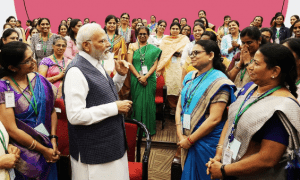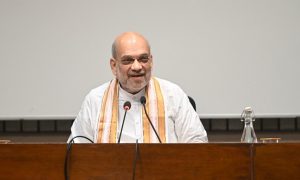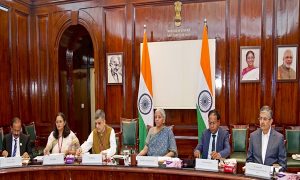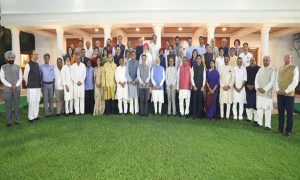On the occasion of the 95th birth anniversary of former PM Atal Bihari Vajpayee, Prime Minister Narendra Modi on Wednesday launched the ‘Atal Bhujal Yojana’ and said that a ‘nationwide’ participation is needed to water crisis in the country.
Addressing a gathering at the Vigyan Bhawan in New Delhi, PM Modi said that over 15 crore households will have tap water access in next five years. He also appealed the start-ups to develop technology that reduces dependence on water.
“We aim to use space technology and artificial intelligence under Jal Jeevan Mission to provide information to farmers for better water management,” said PM Modi while adding that the government will ensure that every house gets access to water through Atal Jal Yojana.
He further said that Atal Bihari Vajpayee’s vision on water management continues to inspire the country even today.
PM Modi also took a jibe at the previous governments for poor water management, saying lack of holistic approach in the past hindered access to basic necessity like water.
The Prime Minister also urged the farmers to switch over to crops that use less water, he exhorted people not to waste the precious natural resource in daily household needs and said only three crore out of 18 crore rural households today have clean, piped water.
The plan, he said, is to provide the remaining 15 crore rural households with piped water in the next five years.
He also named Rohtang passageway in Himachal Pradesh as Atal Tunnel to mark the 95th birth anniversary of former prime minister Atal Bihari Vajpayee.
“Today an important project that is very important for the country has been dedicated to Atal ji. Rohtang Tunnel connecting Himachal Pradesh to Ladakh and Jammu Kashmir, and connecting Manali with Leh, will now be known as Atal Tunnel,” he said.
Earlier, the Union Cabinet gave its approval for the implementation of the Atal Bhujal Yojana, a central sector scheme with a total outlay of Rs 6,000 crore to be implemented over a period of five years (2020-2021 to 2024-2025).
The scheme aims to improve groundwater management through community participation in identified priority areas in seven states — Gujarat, Haryana, Karnataka, Madhya Pradesh, Maharashtra, Rajasthan and Uttar Pradesh. Implementation of the scheme is expected to benefit nearly 8,350 gram panchayats in 78 districts in these states.
The initiative will promote panchayat led groundwater management and behavioural change with a primary focus on demand-side management.






















 WhatsApp us
WhatsApp us